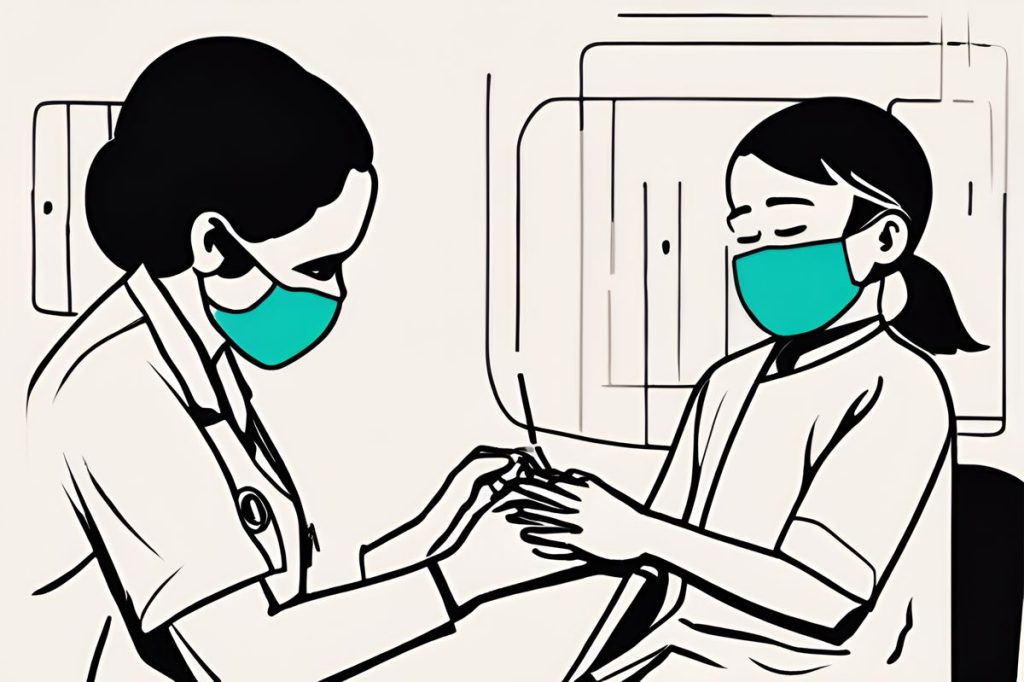Two young children, aged 17 months and 22 months, have been released from Makarios Hospital after being treated for measles, highlighting the importance of vaccination in protecting toddlers from severe complications. A seven-month-old infant remains in hospital care, emphasizing the risks measles poses to young children and the need for increased vaccination coverage.
Why is the measles vaccination important for toddlers?
Measles vaccination is crucial for toddlers because their immune systems are still developing, making them vulnerable to diseases like measles, which can lead to severe complications. Immunization provides protection against this highly contagious disease, contributes to herd immunity, and significantly decreases child mortality rates related to measles.
Measles Cases at Makarios Hospital
Recently, a concerning health update emerged as two young children were treated for measles at Makarios Hospital. The toddlers, one 17 months and the other 22 months old, were released on Tuesday, confirmed by Avraam Ilias, the hospital chief. Notably, neither child had received the measles vaccine. Vaccinations are a critical defense against such diseases, especially in young children whose immune systems are still developing.
While these two toddlers have returned home, a seven-month-old infant is still under medical care at the hospital. The baby’s continued treatment underscores the severity of measles, which can lead to serious complications in infants. So far, this year has seen a total of five reported cases of measles at Makarios Hospital alone.
The Risks of Low Vaccination Coverage
Dr. Ilias has expressed concern over the possible spread of measles, highlighting the issue of low vaccination coverage. Despite efforts, the vaccination rate for measles stands at 80%, which is below the 95% threshold considered necessary for herd immunity. Herd immunity is crucial as it protects those who are unable to get vaccinated, such as newborns or individuals with specific health conditions, by ensuring that a large proportion of the population is immune, thus preventing disease outbreaks.
The situation has become worrisome not just locally but across Europe as there has been an uptick in measles cases. This resurgence is alarming because measles is a highly contagious disease that can lead to severe health complications, including pneumonia, encephalitis, and even death. In response, the health ministry is actively working to monitor and address the rise in cases, emphasizing the importance of vaccination as a preventive measure.
The Importance of Immunization
Measles vaccinations play a pivotal role in public health, offering protection against a disease that was once a leading cause of child mortality. The vaccine’s effectiveness and safety are well-documented, with extensive research and long-term studies supporting its use. Immunization programs worldwide have led to a significant decline in measles cases and fatalities.
Health authorities continue to advocate for vaccinations, aiming to increase public awareness about the benefits of immunizing children against preventable diseases like measles. By maintaining high vaccination rates, communities can safeguard against the resurgence of these illnesses, ensuring the well-being of all members, especially the youngest and most vulnerable.
Ongoing Efforts and Preventive Strategies
The health ministry’s initiatives include public education campaigns to inform parents about the importance of timely vaccinations. Additionally, health care providers are encouraged to engage with hesitant families, providing them with accurate information and addressing any concerns they may have regarding vaccine safety.
Preventive strategies also involve surveillance systems to quickly identify and respond to measles cases. Quick response is crucial in containing outbreaks and preventing further spread of the disease. Health care professionals are on the frontline of this effort, offering not only treatment but also guidance on how to prevent the spread within households when a family member has been diagnosed with measles.
By adhering to recommended vaccination schedules and maintaining a high level of community immunity, we can continue to combat the spread of measles and protect public health.
Why is the measles vaccination important for toddlers?
Measles vaccination is crucial for toddlers because their immune systems are still developing, making them vulnerable to diseases like measles, which can lead to severe complications. Immunization provides protection against this highly contagious disease, contributes to herd immunity, and significantly decreases child mortality rates related to measles.
What are the risks associated with low vaccination coverage for measles?
Low vaccination coverage for measles poses significant risks, as seen in the recent cases at Makarios Hospital. When vaccination rates fall below the 95% threshold needed for herd immunity, vulnerable populations, such as infants and individuals with health conditions preventing vaccination, are at greater risk of contracting the disease. This can lead to outbreaks, severe health complications, and even fatalities, emphasizing the importance of maintaining high vaccination rates.
How can public health authorities address the rise in measles cases?
Public health authorities are actively working to address the rise in measles cases through various initiatives. These include public education campaigns to raise awareness about the importance of vaccinations, engaging with hesitant families to provide accurate information and address concerns, and implementing surveillance systems to quickly identify and respond to cases. By promoting vaccination, monitoring outbreaks, and ensuring timely intervention, health authorities aim to prevent the spread of measles and protect public health.
What are the ongoing efforts and preventive strategies in place to combat measles?
Ongoing efforts to combat measles include comprehensive immunization programs, public education campaigns, and surveillance systems to monitor and respond to outbreaks. Health care providers play a crucial role in advocating for vaccinations, addressing concerns, and providing guidance on preventive measures. By adhering to recommended vaccination schedules, maintaining community immunity, and responding swiftly to cases, health authorities can continue working towards the eradication of measles and protecting vulnerable populations, especially young children.

